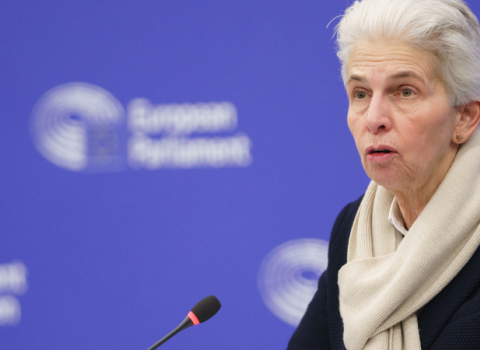A Centre of National Excellence for the Internet of Things, led by a UCL Professor, launches today to further enable the UK to become a world leader in tackling cyber threats.
The Internet of Things (IoT) refers to smart, internet-connected devices such as home hubs, smartphones and wearable tech which gather and analyse data to help someone with a task or learn from a process.
As part of the Government’s wider initiative, “’Designing out’ cyber threats to businesses and personal data” the PETRAS 2 (Privacy, Ethics, Trust, Reliability, Acceptability and Security) Centre will provide a step-change in research associated with the collection and communication of data by the IoT.
The Centre’s research focus will be on the opportunities and threats that arise from ‘edge’ computing, an innovative way to collect and analyse data in machine learning and AI technology. When implemented successfully, edge computing can improve network performance by reducing latency, which is the time taken for data to traverse a system.
PETRAS Director Professor Jeremy Watson (UCL STEaPP) said: “The Centre’s ultimate aim is, by creating a trustworthy and secure infrastructure for the Internet of Things, to deliver a step change in socio-economic benefit for the UK with visible improvements for citizen wellbeing and quality of life.
“I anticipate productivity improvements and cost savings across a range of sectors including healthcare, transport and construction. In bringing together academics, industry technologists and government officials our research will create accessible and relevant knowledge with clearly visible impact (economic, societal or cultural) that will help to cement the UK's position as a world leader in this area.”
PETRAS 2 is the second phase of the PETRAS programme, funded by UK Research and Innovation (UKRI) as part of the Security Digital Technologies at the Periphery programme. This phase will strengthen the established platform, which since 2016 has coordinated and convened 11 universities and 110 industrial and government user partners in cross-disciplinary collaboration.
PETRAS has created a shared research agenda which incorporates social and physical science challenges in equal measure and has worked across a broad range of Technology Readiness Levels.
Dr Madeline Carr (UCL STEaPP) said: “Ensuring that the UK leads from the front on emerging technologies will require close attention to the policy landscape that enables growth and promotes the implementation of secure, trusted systems.
“The UK has already exhibited real leadership through the Secure by Design Code of Practice for IoT consumer devices and we’re pleased to be able to continue to support those efforts through PETRAS 2.”
This release was first published 28 March 2019 by University College London





 A unique international forum for public research organisations and companies to connect their external engagement with strategic interests around their R&D system.
A unique international forum for public research organisations and companies to connect their external engagement with strategic interests around their R&D system.